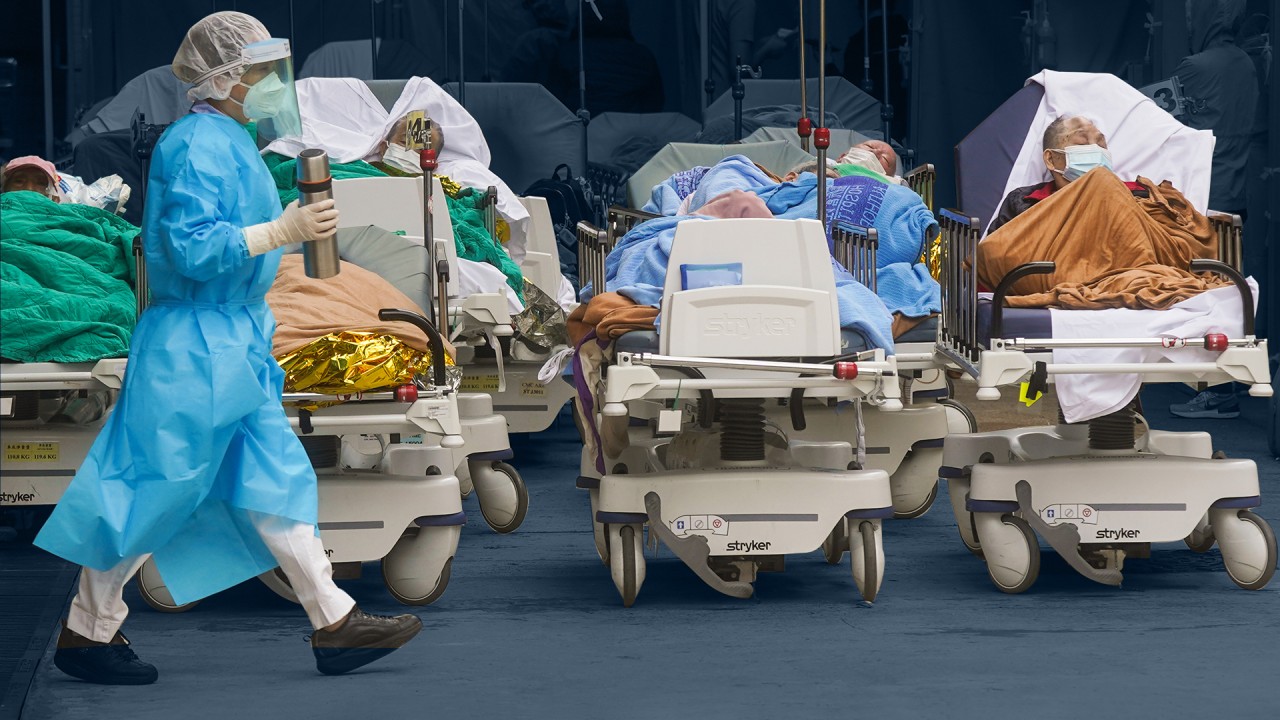
Coronavirus: Hong Kong to mobilise police for Covid-19 fight with new anti-epidemic task force to prepare for mass testing
- John Tse, former head of police public relations branch, will be seconded to Security Bureau for six months to take leading role in task force, sources say
- Civil servants and volunteers from private sectors set to help out on the ground, such as taking part in lockdown operations and distributing meal boxes
Sources said the former head of the police public relations branch, John Tse Chun-chung, currently commander of Kwai Tsing district, was seconded to the bureau to take a leading role in the task force starting on Monday.
Tse was the face of the police force when the city was rocked by anti-government protests in 2019. He took charge of the daily press conferences during the period and often came under heavy criticism when defending police’s handling of the demonstrations.
The Post has learned that Tse’s secondment will last for six months.
The new task force, headed by retired Fire Services Department director Daryl Li Kin-yat, will supervise the isolation facilities to prepare for universal testing.
Sources also said thousands of civil servants – including frontline staff from the Leisure and Cultural Services Department, clerical officers from the lands and labour departments, and even tax assessors from the Inland Revenue Department – will form teams to help out on the ground for three months.
“Department heads will submit names of their colleagues, and unless you are pregnant, sick or currently on leave for more than one month, no one – including contract or temporary staff – can be exempted,” a civil servant involved told the Post.
Larger departments are required to provide at least 10 teams of about 100 persons each, according to an internal memo.
Staff involved in community lockdown and isolation operations would help cordon off areas, set up computers, manage crowds and procure meal boxes for residents. They would be eligible for overtime allowance if assigned to work during non-office hours.
The list of civil servants to be deployed was expected to be announced internally by the departments this week, another source added.
A government insider said deployments of this nature had been ongoing since the fifth wave of infections began, but more departments were involved this time.
More than 8,500 volunteers, including those from pro-government group Hong Kong Community Anti-Coronavirus Link and private companies such as New World Development and NWS Holdings, will help distribute masks, test kits and meals, and guide residents to testing centres, according to Link convenor Bunny Chan Chung-bun.
Federation of Civil Service Unions chief executive Leung Chau-ting said, however, that he was worried some civil servants would be put at risk as there was not enough training for them.
“And it is hard for you to say no even if you have concerns,” he said. “Department heads would treat you as absentees and there might be consequences.”
With the city reeling from the worsening fifth wave, the government has been racing to identify facilities to isolate tens of thousands of residents who have tested positive for Covid-19 but are still stuck at home.
Chief Executive Carrie Lam Cheng Yuet-ngor has tasked Secretary for Security Chris Tang Ping-keung, a former police chief, with overseeing the operation of community isolation facilities. Tang then set up an anti-epidemic task force to speed up the measures.
Infected residents cannot be isolated at home, even if they have mild or no symptoms, under the city’s “dynamic zero-infection strategy”. More than 30,000 people are waiting to be moved into isolation facilities.
Under the government’s preliminary plan, the city’s entire population of about 7.4 million will be tested a few times in a short period. Authorities will use residents’ identity cards for scheduling to make sure everyone takes part. Children without an ID card will be tested with their parents.

The Post has learned another 10 hotels providing about 4,000 rooms are set to be turned into isolation facilities later this week to accommodate infected residents with mild or no symptoms. Some quarantine hotels designated for people deemed close contacts of coronavirus patients and in-bound travellers will also be used for this purpose.
Last week, four quarantine hotels providing 1,700 rooms were turned into isolation facilities.
About 1,000 retired officers from the disciplined services will be hired to help manage the sites. A government source said he expected the recruitment would be completed soon and the retired officers would receive training on the operation of the hotels and matters needing attention, particularly on infection control.
Sze Lai-shan, deputy director of the Society for Community Organisation, said the NGO had received calls for help from about 300 people, including cases of infected residents of subdivided units, cage homes and cubicles. Many of those living in such cramped units have to share living spaces and toilets.
Sze said the homeless faced a special challenge, as they had no place to self-isolate if they contracted the virus.
She called on the government to provide test kits for low-income residents, and to help infected people in poor living conditions move into hospitals or quarantine facilities as soon as possible.
Additional reporting by Fiona Sun



